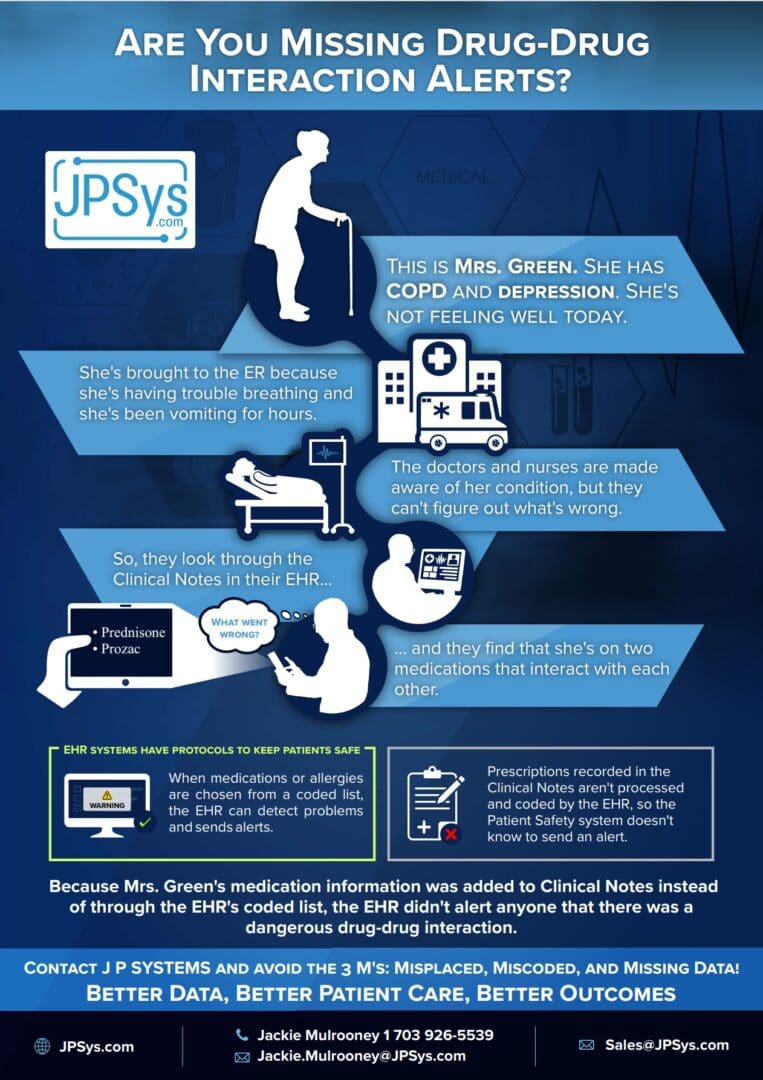CLINICAL DATA QUALITY IMPROVEMENT
Data quality processes are crucial for improving patient outcomes. Our new methodology called the Clinical Data Quality Usability Scale (C-DQUS®) helps providers measure the usability of their data. We are currently establishing the criteria and metrics for a Clinical Data Quality Usability Scale (C-DQUS®).
Purpose of C-DQUS®:
C-DQUS® uses surveys, assessments, analytic tools, and measures to develop KPIs which visually present the clinical data quality, highlighting both usability and patient safety improvement opportunities for your organization.
JPSYS unique C-DQUS® projects incorporate technologies and C-DQUS® team implement a clinical data quality solution to evaluate data and provide the recommendations to create resolutions.
Based on the appropriate HL7 standards, recommendations may include:
- Terminology solutions
- Configuration solutions
- Business data flow and best practice alternatives
- Identification of root cause of the issues
- Document how to add value to the users across the health care ecosystem (e.g., administration, operations, regulatory, public health)
Our unique total Data Quality solution is not just a software utility which we install, but a holistic data quality improvement team which monitors your incoming data and helps you engage your trading partners. The team includes a diverse range of skill sets to address the problems posed by your incoming clinical data. We supply the exact skill mix you need, such as IT analysts, clinicians, data scientists, data quality analysts, and HL7 data standards experts such as CDA or FHIR® analysts. Engage with our Data Quality (DQ) teams and they will identify data problems flowing into your EHR system and track down root causes to help eliminate missing, miscoded, and misplaced data which all pose risks to patient safety. Our virtual consultations give you access both to nationally known clinical data quality experts, Informatics experts, Nursing workflow experts, and international data standards experts.
Data quality problems can sometimes be traced back to improper set up of your EHR system. If your EHR system had prompted the user to enter RXNorm codes and NDF-RT codes were entered instead, then the critical drug - drug interaction checks will not execute properly. This is a critical risk and liability issue for all roles responsible for Risk and Data Quality. It is imperative that testing be done to ensure that this and all other patient safety protocols are working as the EHR vendor intended. We will work together with your vendor on such issues.
Your EHR system, such as Epic or Cerner, creates standard HL7 clinical documents known as CDA files. These files have varying standard formats such as Continuity of Care Documents (CCDs) and other types. We have special tools which parse and look inside the CDA files to see if the data is being sent out correctly. We can identify if data is missing, mis-coded or in the wrong place. Then we provide you with a report of our recommendations for improvement.
We meet with your staff to brief them on who should be in the meetings with our data quality team and decide how we access your data. Then once we receive your data, we kick off with an explanation of how we work and what we do. Next, we run our proprietary tools to create summaries of your most important domains (allergies, lab, etc.) for each of the CDA files which we receive. We provide a detailed report of six or more clinical domains to show you exactly where the problems are. Then you will know who to call and how to track down the source of the errors. The process repeats with the next set of files and domains.



